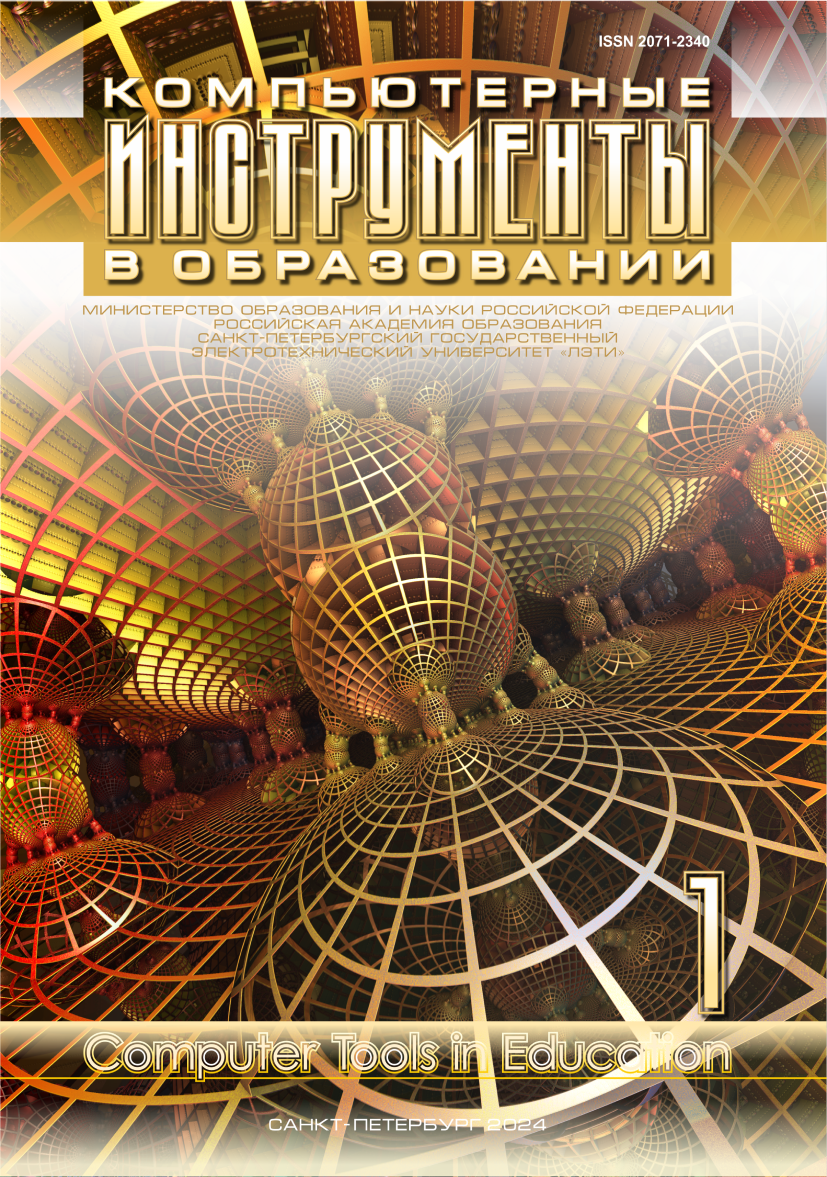Web Application for Testing Intelligent System Based on the Theory of Multioperations
Abstract
The article describes the realization of two of three modules of an intelligent system which are based on the theory of multioperations. A relational model is used for keeping data. The multioperation inclusion system applies for solving the problem of uncertainty about which elements are stored in tables of the database. The solution of the system of inclusions is a partial solution where instead of symptoms specific values are substituted which are determined with the help of physical parameters of the patient and model of symptoms. This approach allows to get an explanation of the result on the client side without loading the server. Human-machine interface allows users to interact with the system. In the article the additional functionality of the system is also described: adding and changing the system of inclusions, recording user’s data, etc. The developed web-application allows testing the approach to building an intelligent system with explanation property which is based on the theory of multioperations.
References
S. I. Todikov, “The Possibility of Applying the Theory of Multioperations to Build Self-learning Artificial Intelligence Systems with the Explainability Property,” in Proc. of 2023 IV International Conference on Neural Networks and Neurotechnologies (NeuroNT), pp. 56–59, 2023; doi:10.1109/neuront58640.2023.10175856
N. A. Peryazev, “Algebras of n-ary Operations and Multioperations,” in Proc. of XV International Conference Algebra, Number Theory and Discrete Geometry: modern problems and applications, Tula State Pedagogical University, 28–31 May 2018, Tula, Russia, pp. 113–116, 2018 (in Russian).
N. A. Peryazev, “Clones, Co-Clones, Hyperclones and Superclones,” Kazan. Gos. Univ. Uchen. Zap. Ser. Fiz.-Mat. Nauki, vol. 151, no. 2, pp. 120–125, 2009 (in Russian).
N. A. Peryazev, “Systems of Inclusions with Unknowns in Multioperations,” Bulletin of Irkutst State University - Series Mathematics, vol. 38, pp. 112–123, 2022 (in Russian).
N. A. Peryazev, “Representation of algebras of multioperations by spatial matrices,” in Proc. of the XVIII Int. Conf. Algebra, number theory and, discrete geometry: modern problems, applications and problems of history, Tula State Pedagogical University, 23–26 Sep. 2020, Tula, Russia, pp. 107–111, 2020 (in Russian).
S. I. Todikov, “Solving systems of inclusions with unknowns in multioperations,” in Proc. of the 7th Int. Conf. Syntax and semantics of logical systems, 1–5 Aug. 2022, Vladivostok, Russia, p. 53, 2022 (in Russian).
The PostgreSQL Global Development Group, “PostgreSQL — About,” in www.postgresql.org, 2024. [Online]. Available: https://www.postgresql.org/about/
StrongLoop et al., “Express 4.19.2 Fast, unopinionated, minimalist web framework for Node.js,” in expressjs.com, 2024. [Online]. Available: https://expressjs.com/
E. You, “Vue.js — Introduction,” in vuejs.org, 2024. [Online]. Available: https://vuejs.org/guide/ introduction.html

This work is licensed under a Creative Commons Attribution 4.0 International License.







